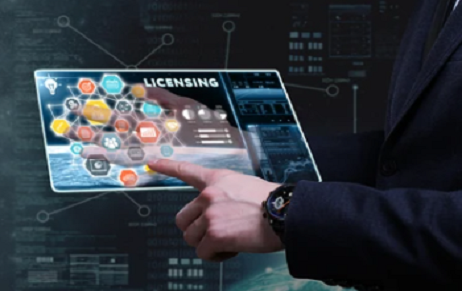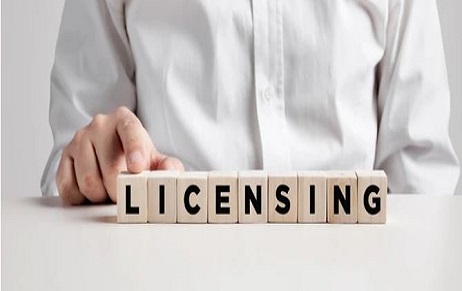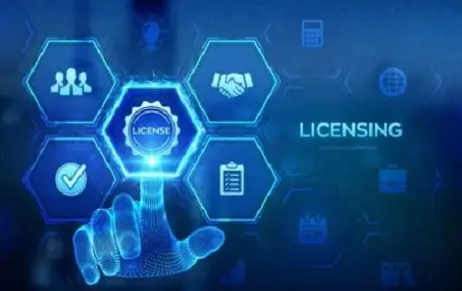Introduction A trademark helps a consumer obtain goods and services of a certain quality and reduces…
Licensing in the UAE
The Federal Law of the UAE No. 17 of 2002, in the Regulation and protection of industrial property for patents and industrial designs in Article 1 clearly depicts the intent of the invention for which the patent is granted and indicated the same article specifies what is meant by a patent. It is clear that the patent gives the owner of the invention the right to exploit his invention financially by himself or by another person in the event such exploitation rights are conferred upon another person. The UAE laws allow the judiciary and the respective competent authorities to intervene and remove the right of the inventor.

Article 5 of the Convention provides for grants. Paragraph (a) stipulated that compulsory licenses were granted on a case-by-case basis, and noted Paragraph (b) stipulates that a compulsory license may not be granted except after the applicant Compulsory to make reasonable efforts to obtain an agreement and reasonable commercial terms Within a reasonable period, the same paragraph authorized an exemption from the requirement of prior negotiation in cases of public emergency, utmost necessity, and non-commercial public interest.
TRIPS Agreement
The TRIPS Agreement deals with the compulsory license under Article 31. The provision consists “other uses without the consent of the rights holder”. The interpretation provides that the reasons usually are: national emergencies or urgent situations and correcting the anti-corrective practices as well as non-commercial use in the public interest. However, in addition, the agreement sets certain strict conditions that must be met for granting a compulsory license. It is because the license hinders and limits the effectiveness of the invention.
Compulsory Licensing under the UAE law
Article 15 of the 2002 Federal Law No. 17, stipulates regarding the organization and protection of industrial designs on “The patent shall be granted to its owner: (a) the right to exploit the invention….”.
- The exploitation of a patent means that the owner of the patent can materially use it. It means if the subject matter of the patent is an industrial product, then the rights to manufacture, use, offer for sale or similar purposes and to prevent any third party to illegally use the subject are provided.
- The contract between the patent owner and the third party seeking the license must be a consensual one. The latter must have the requisite rights to exploit the patent without any prejudice.
Compulsory Licensing in the UAE
UAE law did not address the definition of a compulsory license. In the country, it is believed that legislator does not have the duty to make the law to be able to keep up with the developments occurring in the patent regime. Chapter II of Part II of the 2002 Federal Law concerns the regulation and protection of industrial property patents in the Industrial Designs. The provisions related to compulsory licenses issued by the Elimination that was at the request of those concerned in specific cases related to public emergency or any General urgency for non-commercial purposes.
Article 29 of the law deals with the provisions of administrative compulsory license issued upon a decision of the competent authority or minister in case the invention is related to public interest as according to the public interest. The condition has been specifically provided in Article 24 of the law. The right to exploit the invention or patent shall be the result of a contract concluded between the inventor and the public authority with the intent to satisfy the general requirements and needs. The UAE legislator and competent authority regulates the provisions related to compulsory license to deal with the case of non-compliance. Any interested party and stakeholder may apply to the competent court for a judicial ruling on the exploitation. An invention protected by a patent certificate given by the competent authority can be compulsorily licensed through a request by the interested party. Additionally, the exploitation by the owner and inventor must have happened at least for three years and post that, the requisite application by any interested party has to be made before the competent authority. The compensation to the patent holder must be fair and should be able to incentivise the innovator for the time, efforts and the research. The appeal related to amount of compensation and grant of compulsory license can be presented before the higher authority or independent authority.
Conclusion
In light of the study of statutory provisions dealing with compulsory licensing in UAE law and the TRIPS Agreement, it is clear that the extent to which the instruments agree to grant third parties a compulsory license falls on the exclusive right of the owners. In the event that the inventor refrains from granting a voluntary license to third parties, the provisions shall be observed. The interests of both the inventor and the requirements of the public interest are contained in the TRIPS Agreement and UAE law. When the legislation specifies certain conditions that must be met when the authority grants a compulsory license, the conditions must be met. The applicant of the compulsory license shall observe it, in consideration of the interest of the inventor and the owner of a patent. The invention also gives the owner the right to receive just compensation commensurate with the nature of the invention, exploitation, the period of exploitation and also the right to challenge the decision to grant a compulsory license or the amount of compensation before the competent court as the case may be. Therefore, the requisite procedure is already set.
Author: Tanya Saraswat – a student of Narsee Monjee Institute of Management Studies (NMIMS), in case of any queries please contact/write back to us via email [email protected] or at IIPRD.



